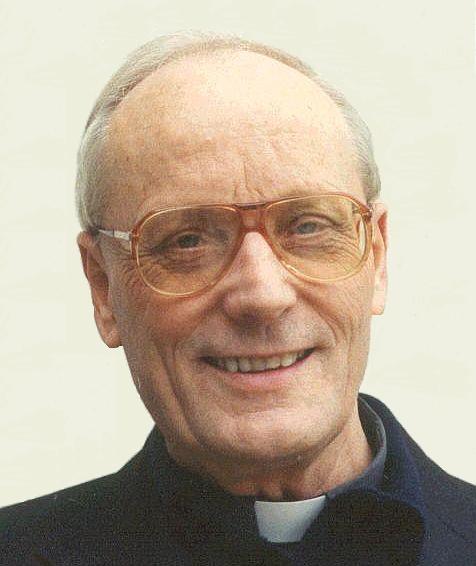Daniel Comboni
Comboni Missionaries
Institutional area
Other links
Newsletter
In Pace Christi
Marchetti Mario
Fr. Mario Marchetti (19.02.1922-26.12.2006)
Fr. Mario Marchetti, born in Pietrasanta on 19 February 1922, made his first profession on 7 October 1940 and his final profession on 7 October 1945. He went for his last year of studies to Rome, where he was ordained priest on 20 April 1946.
From the day of his priestly ordination he was assigned to Uganda, where he worked till 1960. Transferred to the Italian province for 5 years, he returned to Uganda in 1965, assigned to Lacor minor seminary. In 1969 he was appointed rector of the seminary and superior of the community. In 1970 he was appointed “Regional Superior”, an office that he held till 1976. In 1975, against all the odds at the time, Fr. Mario opened the scholasticate of Kampala which successfully functioned till 1988, the year it was transferred to Nairobi.
Assigned to the Curia community in 1980, he served as spiritual director of the Collegio Urbano. During this time he developed a close friendship with some Polish priests and lay people, thus preparing the ground for the decision taken in the General Chapter of 1985 to open a Comboni Missionary community in Poland.
He returned again to Uganda in 1986, but in 1988 he was sent to Asia, as representative of the Superior General, with the task of opening a community in the Philippines, to ensure a presence of the Comboni Missionaries in Asia. The first community was officially established in 1990 and Fr. Mario was the first local superior. He also oversaw the Institute’s first steps in Macau. In 1993 the first group of Comboni Missionaries became the delegation of Asia.
In 1993 he returned to his mission in Uganda and was assigned to Layibi community and chaplain of the nearby “Layibi College”. In his spare time he enjoyed studying the life of Comboni and of confreres who were pioneers in the Ugandan Mission. He produced several articles and a short biography of Bro. Clemente Schroer, who worked for many years in the North of Uganda and died in Gulu in 1942.
Appointed as Postulator for the Cause of beatification of the martyrs of Paimol, Daudi Okelo e Gildo Irwa, Fr. Mario worked with enthusiasm for it. The two martyred catechists were beatified by John Paul II on 20 October 2002 in Rome.
In 1998 Fr. Mario went as chaplain to Lacor Hospital, but the following year, following the untimely death of Fr. Vittorino Cona, he returned to Layibi as local superior. Fr. Mario, though, was beginning to feel tired and in need of some rest and medical treatment. In 2004 Fr. Teresino Serra, the Superior General, assigned him to the Italian province with a letter that, among other things, invited Fr. Mario to live his suffering by bearing the mission in his heart.
As for his character, Fr. Mario was true to his Tuscan origin: intelligent, witty, dynamic, gentle and attentive to all, but particularly critical of those who were not sufficiently committed to the mission and community life. He liked to play cards with his confreres, but not to lose at the game. All appreciated his gifts as a leader and organizer, but above all as a person who knew how to be discreet in confidential matters. He knew how to make things happen and he would become impatient with those inclined to drag their feet and to postpone to tomorrow what could be done today. He had to struggle with his own somewhat anxious temperament, but no one would ever doubt his right intention and honesty. Fr. Glenday writes: “From what he shared with me as Superior General, I can testify to his very deep sense of God and his devotion to the Heart of Jesus. Missionaries like Fr. Mario are the true treasure of our Institute.” He lived his passion for the mission till the last as a worthy son of Daniel Comboni, whom he loved very much.
The Uganda province is grateful to Fr. Mario for the great work he has done in this missionary area. (Fr. Giuseppe Filippi)
Da Mccj Bulletin n. 234 suppl. In Memoriam, aprile 2007, pp. 61-69.

